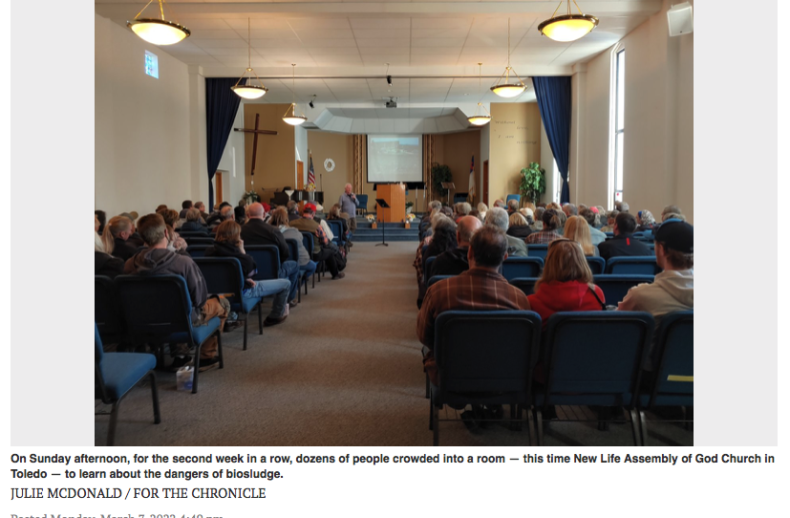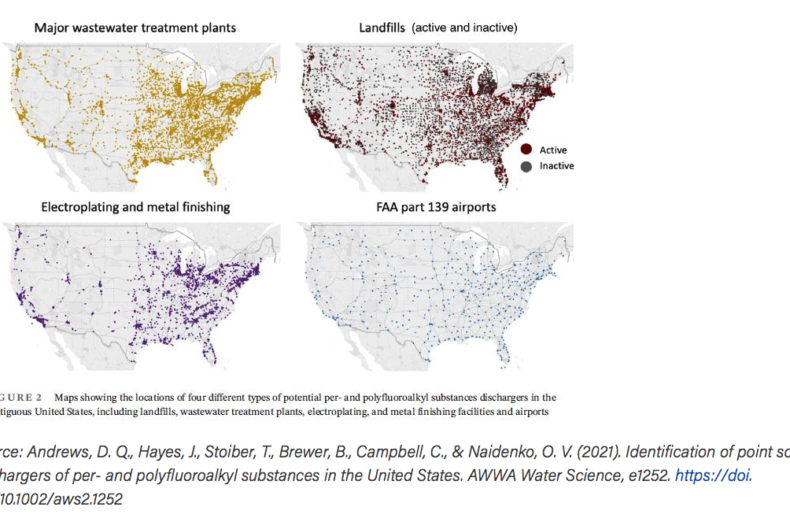….
“For many years I’ve been working in the field of toxic waste, toxicology, cancer, infectious diseases, and it always leads into the business of sewage sludge and other forms of toxic waste,” he said.
Last week, Honour spoke of the dangers in human sludge, especially from patients treated with chemo, a drug designed to kill human cells, as well as hospital wastes, bacteria, viruses, dioxins, PCBs, asbestos, industrial waste, heavy metals and other hazards.
“For some reason, in Washington state, we live under the delusion that growing our food in extremely toxic waste is good news and is beneficial to the economy because farmers get a break from buying very expensive commercial fertilizers,” Honour said. “But the costs to us in our county and our state are extraordinary.”
….


